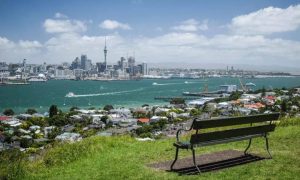As globalization accelerates, more and more people are choosing toemigration, in pursuit of better quality of life, educational resources and career opportunities. However.immigrantsIt is not an easy task, and different countries have put forward different conditions and requirements for immigration applicants.2025, the immigration policies of various countries have been gradually adjusted after the epidemic, which not only increased the attraction of highly skilled personnel, but also strengthened the review of the applicants' economic ability and background. This article will provide you with a detailed analysisemigrationThe core requirements needed, as well as the latest changes in immigration policy, help you to be well prepared.
I. Analysis of the core conditions for immigration
1. Language skills
Language proficiency is a basic requirement for immigration applications, and many countries require applicants to provide language test scores, for example:
- English-speaking countries: IELTS or TOEFL scores are common requirements. For example, Canada's Express Entry usually requires an IELTS score of CLB7 or above (equivalent to a single IELTS score of 6).
- Non-English speaking countries: Germany requires applicants to have German language skills at level B1 or B2, while France requires proof of French language proficiency (e.g. DELF).
2. Educational and professional background
Most countries prioritize the attraction of highly skilled personnel, with the applicant's educational background and vocational skills being the core assessment indicators.
- Skilled immigrants: Australia, New Zealand and Canada all use a point system where applicants are awarded a certain number of points based on education, work experience and age.
- investment immigration:: Some countries have lower educational background requirements, but have strict requirements for applicants' business management experience and proof of source of funds.
3. Economic capacity
Immigration fees include an application fee, a living bond, and possible investment requirements. Example:
- Canada requires skilled immigrants to provide proof of settlement funds, the amount of which depends on the size of the family (the standard for 2025 is approximately CAD 26,000 for a family of four).
- United States of Americainvestment immigration(EB-5) requires a minimum investment of $800,000 and proof of the legitimacy of the source of funds.
4. No criminal record
Almost all immigration programs require applicants to provide proof of a clean criminal record to ensure that they are not a threat to the social security of the destination country.
5. Health conditions
A medical examination is a necessary part of the immigration process, and applicants are required to prove that they are free of major communicable diseases or conditions that pose a threat to public health.
II. 2025Latest Immigration Policiesvariations
1. Canadian: Optimization of points for skilled migrants
Canada's Express Entry (EE) introduces a new scoring mechanism in 2025 that gives extra points to applicants with specific occupational skills and advanced degrees. Meanwhile, the Provincial Nominee Program (PNP) has been further expanded to open up more slots for applicants in specific sectors.
2. Australia: Increase in regional immigration quotas
Australia has strengthened its regional development strategy by tilting skilled migration towards remote areas and encouraging migrants to settle in less populated regions. The migrant quota for remote areas has been increased by 20%, and additional settlement subsidies have been provided.
3. New Zeeland: Introduction of Green List occupations
New Zealand's skilled migration policy has introduced a new "green list" covering occupations in short supply, such as healthcare, IT and engineering. Applicants in these occupations will be prioritized and fast-tracked.
4. United States of America: Immigrant Investor Threshold Increased
The U.S. EB-5 immigrant investor is raising the minimum investment from $800,000 to $1 million in 2025, while strengthening the scrutiny of the source of funds, and the application cycle is expected to be lengthened.
5. Europe: Increasing the attraction of digital and technological talent
Countries such as Germany and the Netherlands have launched Blue Card programs (Blue Card) specifically for digital and technical talent to encourage tech professionals to move to Europe and facilitate policies that provide family members to accompany them and fast-track permanent residency.
III. Comparison of immigration methods and conditions
| Mode of Immigration | State representative | Core conditions | Suitable for people |
|---|---|---|---|
| skilled migrant | Canada, Australia, New Zealand | Highly educated, language skills, relevant work experience | Highly skilled workers, young professionals |
| investment immigration | United States, Portugal, Malta | Investment of $800,000 to $1,000,000, legal source of funds required | Entrepreneurs, High Net Worth Individuals |
| family reunification | Canada, United States, Germany | Proof of financial ability with a relative as a guarantor is required | Applicants who wish to be reunited with their families |
| business migrant | United Kingdom, Singapore | Innovative business plans, start-up funding | Entrepreneurs with business plans |
| Overseas transfer of minors | Australia, New Zealand, Germany | Eligible for local skilled migration upon completion of studies | Those who wish to obtain permanent residence through study |
IV. How to improve the success rate of immigration?
1. Advance planning for language learning
Language scores are an important foundation for immigration applications. Take language training in advance and choose the right type of test according to the requirements of your target country.


2. Building work experience and skills
Upgrading skills and experience related to occupations that are in short supply in the target country will help to achieve higher scores in the scoring system.
3. Prepare adequate financial proof
Ensure that the source of funds is clearly traceable and prepare detailed financial records to meet immigration funding requirements.
4. Seek support from specialized immigration advisers
Immigration policies are complex and volatile, and professional consultants can provide personalized solutions to help applicants avoid potential risks and increase their success rate.
V. Conclusion: planning for the future, opening a new chapter
emigrationis a complex and important decision that requires applicants to make thoughtful choices based on their individual circumstances. the 2025 immigration policy changes provide more opportunities for highly skilled individuals and applicants in specific fields, but they also raise the bar on financial and background scrutiny.
Whether you're seeking a better living environment or career opportunities, planning ahead and understanding policies is the key to success. We hope the analysis in this article will help youOverseas ImmigrationThe path provides direction to help you achieve your new life goals.






